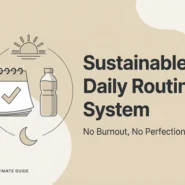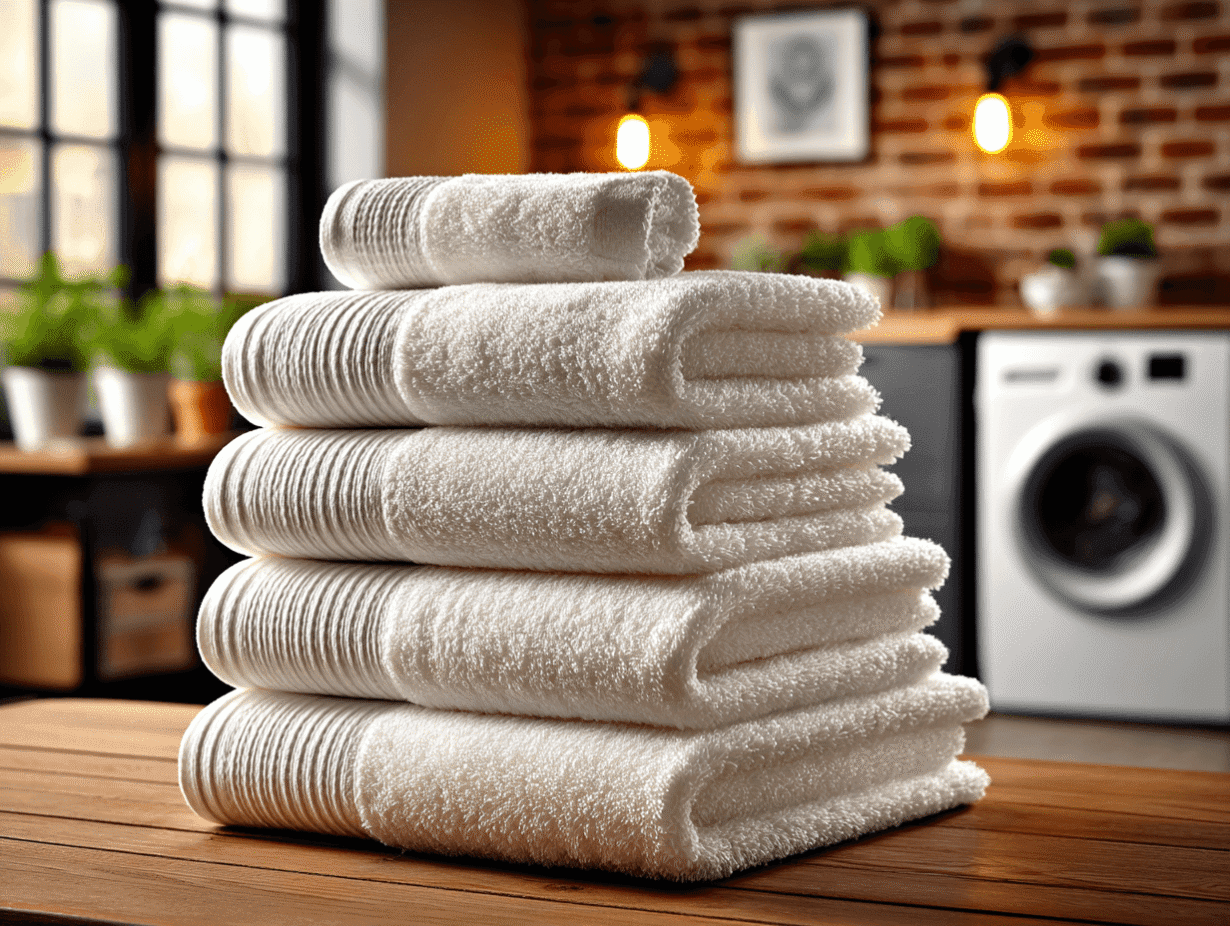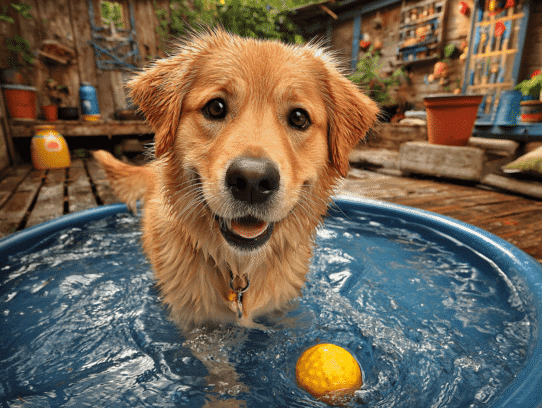Ever wondered why your towels smell musty even after washing? Or why they never feel as fluffy as hotel towels? The secret is in the science of fabric care. This guide will change your laundry routine with proven towel care tips to get rid of towel odors and make towels soft like hotel ones. We’ll cover everything from how to wash towels properly to the best way to wash white towels, ensuring you achieve hotel-quality towels at home.
🧴 Why Your Towels Smell Bad (And How to Fix It)
The bad smell in towels, often referred to as “towel funk,” isn’t just from bacteria. It’s mainly from rancid fatty acids from human body oils. These oils solidify at room temperature and build up over time, causing that musty smell and potentially leading to mildew.
To fix this, you need alkaline detergent and hot water for effective fabric odor removal. This combination liquefies and dissolves the solidified oils. Just sanitizing or bleaching won’t work because you’re not tackling the main problem. It’s like trying to paint over rust without fixing the rust first.
Key Point: Use alkaline detergent with water heated to 60°C (140°F) for effective oil and odor removal.
🏨 The Hotel-Quality Towel Method
To get towels as fluffy and fresh as luxury hotel towels, you need a special method. This method separates towels from other fabrics and uses the right temperature, best detergent for towels, and drying techniques.
Step-by-Step Process for How to Wash Towels:
- Separate towels completely – Never wash with synthetic fibers (polyester, acrylic, nylon) as they cause lint and pilling
- Use alkaline detergent in appropriate amounts based on towel weight
- Set water temperature to 60°C – Cotton towels handle both high heat and alkalinity well
- Triple rinse with strong spin cycles to remove all dissolved oils and detergent residue
- Use a tumble dryer – The tumbling action restores fabric structure for maximum fluffiness
Natural air drying, even in direct sunlight, won’t make towels as soft as machine drying. The dryer is crucial for achieving that hotel-quality softness and fluffiness.
⚠️ Common Mistakes That Damage Your Towels
Many people unknowingly damage their towels by using neutral detergents or cold water when washing towels. Neutral detergents lack the alkalinity needed to break down solidified body oils. Cold water keeps fatty acids solid and hard to dissolve, affecting both towel cleanliness and longevity.
Bleach Overuse Problems: Too much bleaching can thin, weaken, and create holes in towel fibers over time. Oxidative bleaches like sodium percarbonate work on organic matter (sweat, body oils, food stains) but don’t affect inorganic substances like mud, ink, or clothing dyes. Using bleach for color transfers actually damages the fabric without removing the dye.
Proper Bleach Usage: Only use bleach after thorough fatty acid removal, for minimal duration (about 5 minutes), and only when color correction is needed. This is especially important when washing white towels to maintain their brightness without compromising towel longevity.
🧺 The Professional Cleaning Sequence
Professional laundries follow a specific sequence for the best results, which you can adapt for washing towels at home:
- Alkaline detergent – Removes fatty acids and organic matter (primary step)
- Oxidative bleach – For color correction only, limited time exposure
- Neutralizer – Returns fabric pH to neutral, preventing bleach damage
- Fabric softener – Final step for softness and fluffiness
This sequence ensures each product works effectively without interference from others, resulting in hotel-quality towels.
🛏️ Special Care for Duvets and Large Items
Large items like duvets need special care because of their size and filling.
Winter Duvets: Make sure your washing machine can handle heavy, wet items. If it can’t, use big machines or get professional help.
Down Duvets: They can smell bad if not dried well. After washing, add towels for extra water removal. Then, dry them completely to stop bad smells.
Wool Duvets: They might shrink from machine washing, even if it says “machine washable.” It’s best to have them professionally cleaned.
Silk Duvets: They are very delicate and can get damaged by harsh cleaners. Dry cleaning is the safest way to clean them.
💡 The Science Behind Fabric Odors
Fabric smells come from body oils and bacteria growth. The main idea is to remove most of the organic matter first to prevent towel funk.
Laundry needs to get rid of the “sludge” before using disinfectants. This way, cleaners can work better on both cotton towels and microfiber towels.
Additional Towel Care Tips
Vinegar Rinse: Add a cup of white vinegar to the rinse cycle for extra odor removal and to help maintain towel absorbency.
Baking Soda Boost: For particularly smelly towels, add 1/2 cup of baking soda to the wash cycle along with your regular detergent.
Proper Storage: Ensure towels are completely dry before storing to prevent moisture buildup and mildew. Store in a well-ventilated area.
Washing Frequency: How often should you wash your towels? For best hygiene, wash bath towels every 3-4 uses and hand towels every 2-3 days.
Conclusion
Good towel and duvet care is about understanding fabric science and implementing effective towel care tips. It’s not just about using more products. It’s about the right cleaning order, temperatures, and drying methods.
By tackling the source of smells and following the right steps for how to wash towels, you can get your towels and duvets to smell and feel like luxury hotel towels. This approach also enhances towel longevity, ensuring your towels stay fluffy and absorbent for longer.
Next Steps: Start with your toughest towels using alkaline detergent at 60°C. You’ll see a big difference in smell and feel after just one wash. Remember, whether you’re washing white towels or colored ones, the key is in the detergent, temperature, and drying method. With these towel care tips, you’ll be on your way to enjoying hotel-quality towels at home.








